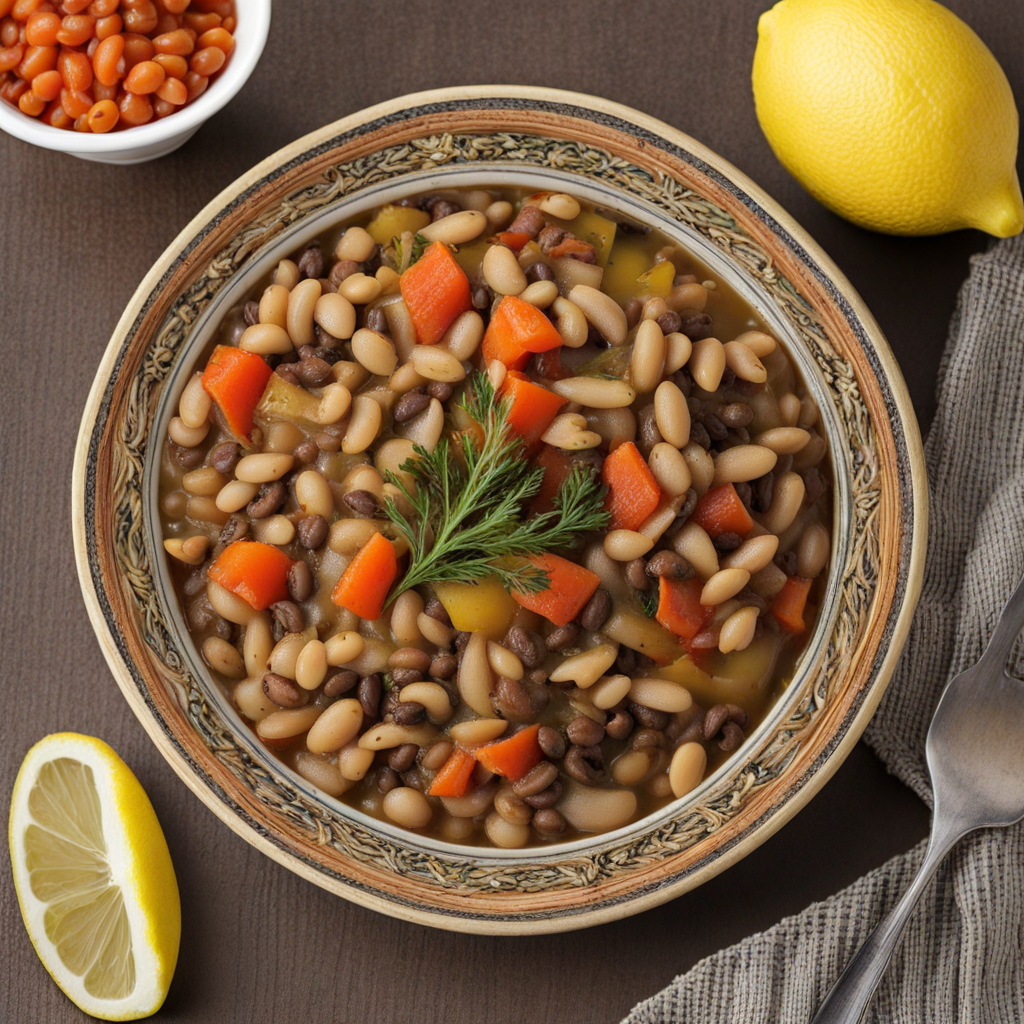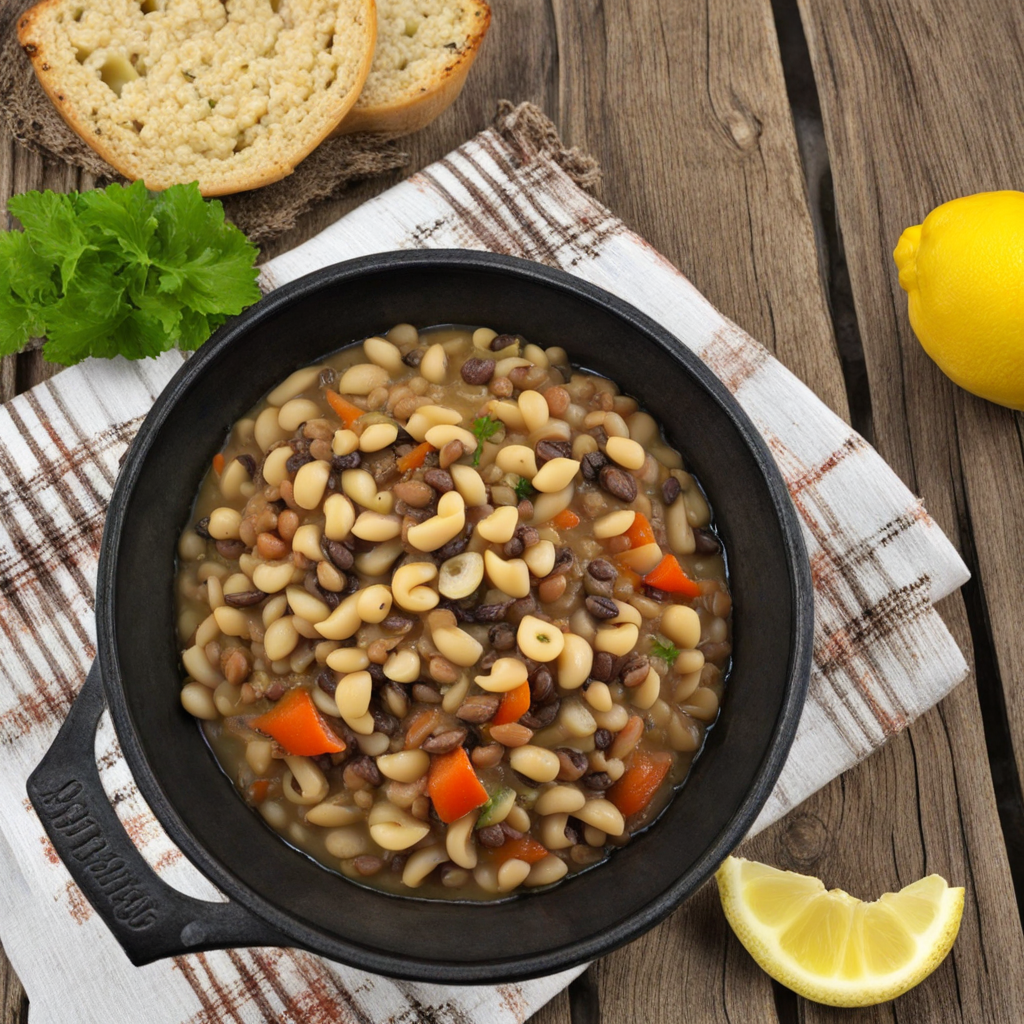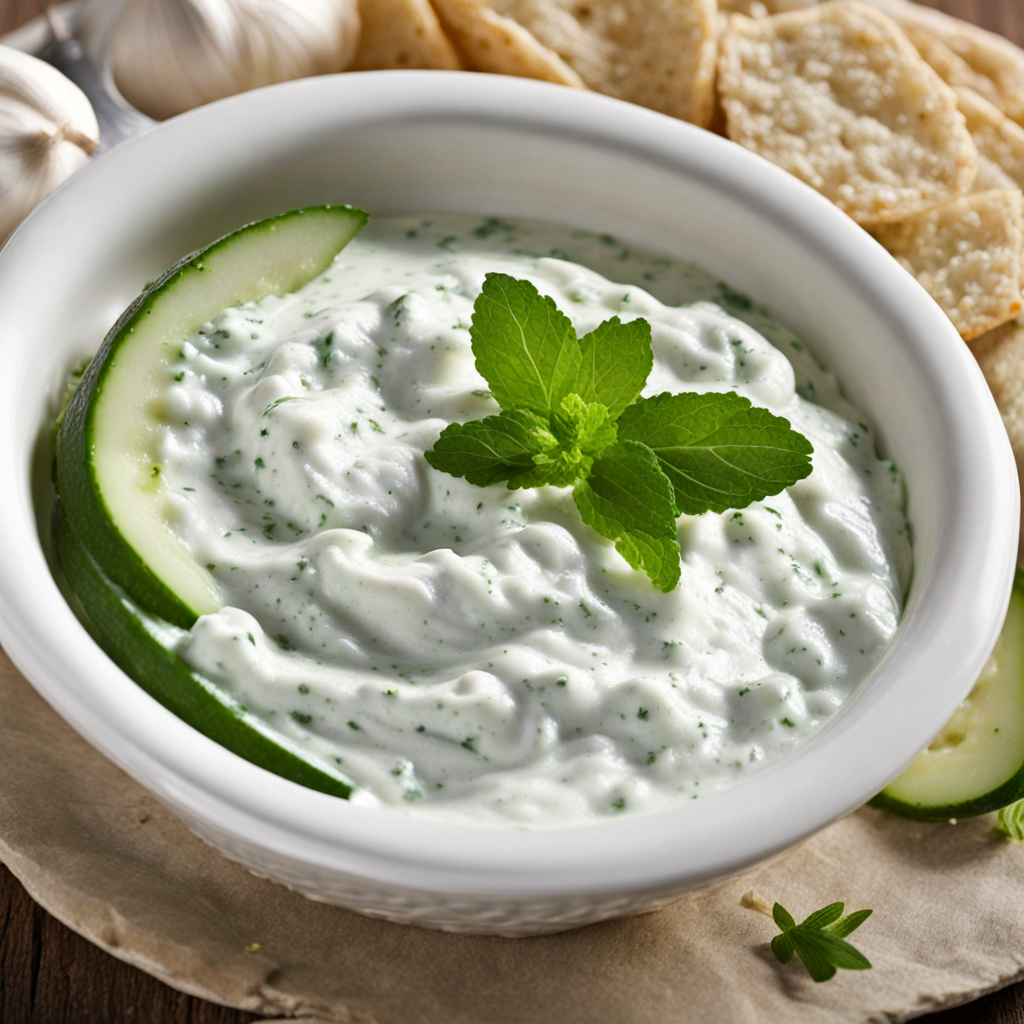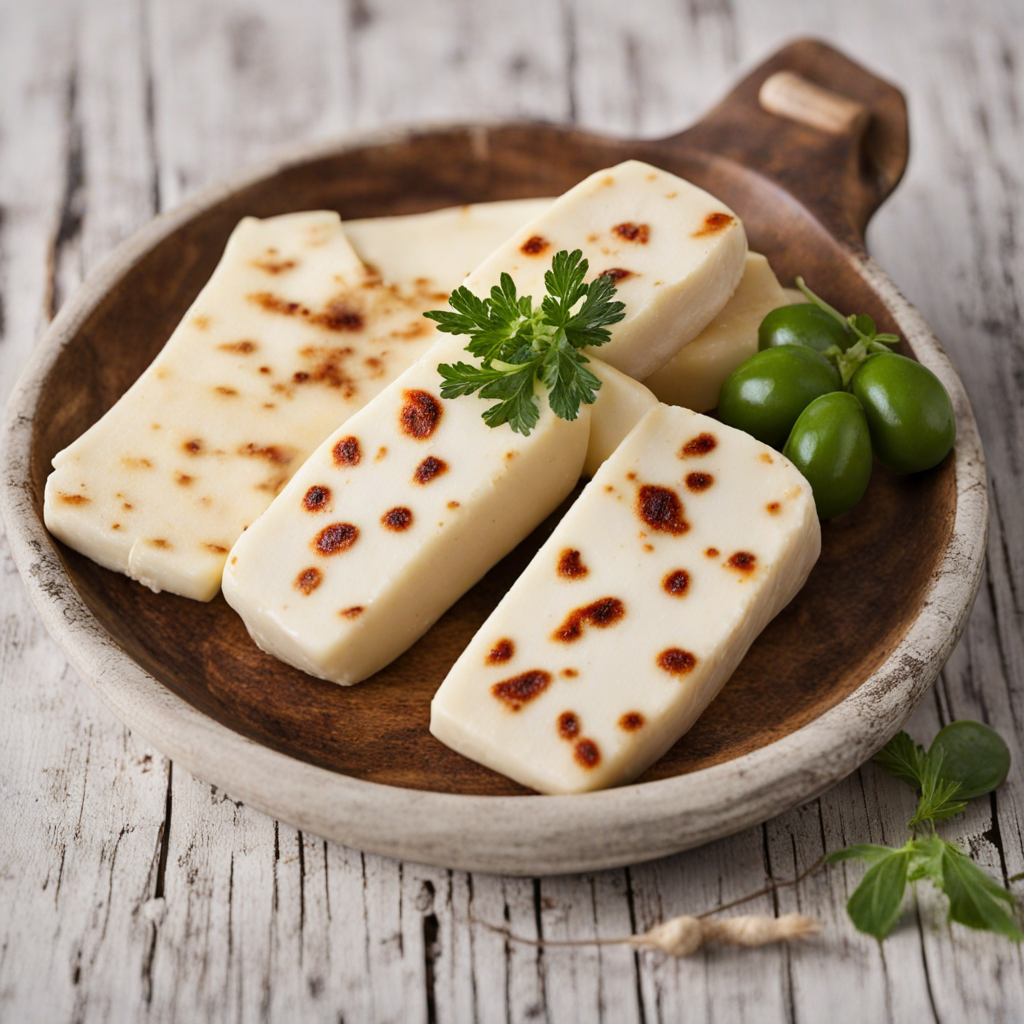Louvi
Louvi, a traditional Cypriot dish, is a delightful representation of the island's agricultural bounty. This unique preparation primarily features black-eyed peas, which are known locally as "louvi." The peas are often cooked to perfection, resulting in a tender yet firm texture that serves as a wonderful base for the dish. Typically seasoned with aromatic herbs and spices, such as cumin and coriander, Louvi is a celebration of simple but vibrant flavors that showcase the essence of Cypriot cuisine. What makes Louvi particularly special is its versatility. It can be enjoyed as a hearty main course or as a side dish paired with grilled meats or fresh salads. Many recipes incorporate diced tomatoes, onions, and sometimes even a splash of olive oil, enhancing the dish with a rich depth of flavor. The combination of textures—from the creaminess of the peas to the crunch of fresh vegetables—creates a satisfying experience for the palate. Moreover, Louvi is often served warm, allowing the flavors to meld beautifully, making it a comforting dish perfect for family gatherings or communal feasts. It can also be enjoyed at room temperature, which makes it an excellent option for picnics or as part of a mezze platter. Whether you're savoring it at a rustic tavern in Cyprus or trying your hand at making it at home, Louvi promises a genuine taste of the Mediterranean that is both nourishing and delicious.
How It Became This Dish
The Engaging History of Λουβί (Louvi) from Cyprus Introduction to Louvi Λουβί, pronounced as "Louvi," is a traditional Cypriot dish made primarily from black-eyed peas (Vigna unguiculata), which are a staple legume in Mediterranean cuisine. Known for its delicate flavor and rich nutritional profile, Louvi has transcended its simple ingredients to become a symbol of cultural identity and culinary heritage in Cyprus. To truly appreciate Louvi, one must delve into its origins, cultural significance, and its evolution throughout history. Origins of Louvi The history of Louvi can be traced back to ancient times, coinciding with the agricultural practices of early civilizations in the Mediterranean region. The cultivation of legumes, including black-eyed peas, has roots in the Fertile Crescent, where agriculture first blossomed. As the Cypriots embraced farming, black-eyed peas became a vital crop due to their ability to thrive in the island's climate and their nutritional value. Historically, black-eyed peas were not only a source of sustenance but also a symbol of good luck in many cultures. In the Mediterranean, they have been consumed since antiquity, featuring in various dishes across different regions. The ancient Greeks and Romans valued legumes for their health benefits, and their use in everyday cooking set the stage for dishes like Louvi. Cultural Significance In Cyprus, Louvi is more than just a meal; it embodies the island’s agricultural traditions and communal values. Traditionally, it was prepared during special occasions, particularly during the harvest season, when families would come together to celebrate the bounty of their land. Louvi is often served during festive gatherings, symbolizing unity and sharing. The preparation of Louvi has cultural undertones that reflect the Cypriot way of life. The dish is often paired with rice or bulgur, served with a drizzle of olive oil, and garnished with fresh herbs. It is typically enjoyed alongside other meze dishes, emphasizing the communal dining experience that is so integral to Cypriot hospitality. Moreover, the use of black-eyed peas in Louvi has a spiritual dimension. In Cypriot folklore, consuming legumes during New Year celebrations is believed to bring prosperity and good fortune, further embedding Louvi in the cultural fabric of the island. Development Through Time As with many culinary traditions, the preparation and presentation of Louvi have evolved over the centuries, influenced by various factors including migration, trade, and globalization. In the early 20th century, Cyprus underwent significant socio-political changes. The island’s complex history of colonial rule and intercommunal relations has also impacted food culture, with Louvi serving as a common thread between Turkish and Greek Cypriot communities. During British colonial rule (1878-1960), Cypriots were exposed to new culinary influences, which gradually made their way into traditional dishes. While Louvi maintained its core identity, adaptations began to emerge. For instance, some modern recipes include the use of spices and flavors introduced by the British, such as curry powder or cumin, adding an exciting twist to the classic preparation. The post-independence era saw a renewed interest in traditional Cypriot cuisine as a form of cultural expression and national identity. Chefs and home cooks alike began to celebrate local ingredients, leading to the resurgence of dishes like Louvi. This revival is often linked to the broader Mediterranean diet movement, which emphasizes the health benefits of legumes. In contemporary Cyprus, Louvi is not only found in homes but also features prominently on restaurant menus, showcasing the dish's versatility. Chefs experiment with creative presentations, pairing Louvi with modern accompaniments such as grilled meats, seafood, or even as a filling for wraps. Nutritional Aspects An essential aspect of Louvi is its nutritional value. Black-eyed peas are rich in protein, fiber, and essential vitamins, making them an ideal choice for a healthy diet. The dish is naturally gluten-free, appealing to a broad range of dietary preferences. In recent years, as the awareness of plant-based diets and sustainability has grown, Louvi has gained popularity among health-conscious individuals and vegetarians. Moreover, the sustainability of legumes like black-eyed peas cannot be overstated. They play a crucial role in crop rotation, enhancing soil fertility, and reducing the need for chemical fertilizers. As global conversations around food security and environmental sustainability continue, the significance of traditional dishes like Louvi becomes increasingly relevant. Louvi in Modern Times Today, Louvi remains a beloved dish in Cyprus, symbolizing both tradition and innovation. It reflects the island's agricultural heritage while adapting to contemporary culinary trends. Food festivals and cultural events often feature Louvi, celebrating its historical roots while inviting new interpretations. Moreover, the dish has gained international recognition, finding its way onto the menus of Mediterranean restaurants worldwide. Chefs outside Cyprus often explore Louvi's flavors, introducing it to diverse audiences and contributing to the appreciation of Cypriot cuisine on a global scale. In addition to its culinary significance, Louvi represents a broader narrative of resilience and cultural pride. As Cypriots navigate the complexities of identity in a modern world, traditional foods like Louvi serve as a reminder of their shared history and heritage. Conclusion The journey of Louvi from its ancient origins to its modern-day interpretations encapsulates the essence of Cypriot culture. It is a dish that not only nourishes the body but also nourishes the spirit, weaving together tales of community, tradition, and resilience. As the world continues to embrace diverse culinary practices, Louvi stands as a testament to the rich tapestry of history that food can represent. Whether enjoyed in a home kitchen or a bustling restaurant, Louvi remains a cherished dish, embodying the heart and soul of Cyprus.
You may like
Discover local flavors from Cyprus







